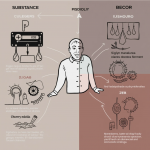
The Future of Remote Work
Description
The shift to remote work has drastically altered the landscape of employment, spurred by advancements in technology and accelerated by global events such as the COVID-19 pandemic. As companies and employees navigate this new normal, the future of remote work appears to be evolving into a hybrid model that blends flexibility with productivity. This article explores the trends shaping remote work, its benefits and challenges, and what the future may hold for workers and organizations.
Introduction
Remote work was once a privilege reserved for a select few, but it has rapidly become mainstream. The pandemic forced many organizations to adopt remote work practices almost overnight, revealing the potential for flexible work arrangements. As we look toward the future, it’s essential to understand how remote work will continue to evolve, the implications for businesses and employees, and the tools and strategies that will facilitate this transformation.
The Evolution of Remote Work
1. Historical Context
Remote work is not a novel concept; it has been around for decades, primarily in the form of telecommuting. However, the rapid advancement of technology and the necessity of remote work during the pandemic marked a significant turning point. Companies that were once resistant to remote work had to adapt quickly, illuminating the possibilities of virtual collaboration and productivity.
2. Current Trends
As we emerge from the pandemic, several trends are shaping the future of remote work:
- Hybrid Work Models: Many organizations are adopting hybrid work models, allowing employees to split their time between the office and remote work. This flexibility caters to diverse employee preferences and work styles.
- Global Talent Pool: Remote work enables companies to tap into a global talent pool, allowing them to hire the best candidates regardless of location. This shift has led to increased diversity and innovation within teams.
- Focus on Results: With remote work, there is a growing emphasis on results rather than hours spent at a desk. Companies are redefining productivity metrics to align with outcomes rather than traditional time-based measures.
Benefits of Remote Work
1. Increased Flexibility
One of the most significant advantages of remote work is the flexibility it offers. Employees can create schedules that accommodate personal commitments, leading to improved work-life balance. This flexibility can result in higher job satisfaction and lower turnover rates.
2. Cost Savings
Both employees and employers can save money in a remote work setup. Employees save on commuting costs, work attire, and daily meals, while companies can reduce overhead costs by downsizing office spaces and decreasing utility expenses.
3. Enhanced Productivity
Many studies have shown that remote workers are often more productive than their in-office counterparts. With fewer distractions and the ability to create a personalized work environment, employees may find it easier to focus and complete tasks more efficiently.
4. Environmental Impact
Remote work can contribute to a reduced carbon footprint. With fewer employees commuting and less energy consumed in office buildings, organizations can significantly decrease their environmental impact, aligning with sustainability goals.
5. Health and Well-being
Remote work can enhance employees’ overall well-being. The elimination of long commutes can lead to reduced stress and more time for personal activities, such as exercise and family engagement, contributing to better mental health.
Challenges of Remote Work
1. Communication Barriers
Despite the advantages of remote work, communication can be a significant challenge. Misunderstandings may arise without face-to-face interactions, and employees may feel isolated or disconnected from their colleagues.
2. Work-Life Boundaries
While flexibility is a benefit, it can also blur the lines between work and personal life. Employees may find it challenging to “switch off,” leading to burnout and decreased productivity over time.
3. Technology Dependence
Remote work relies heavily on technology, which can be a double-edged sword. While tools like video conferencing and project management software facilitate collaboration, technical issues can disrupt workflow and cause frustration.
4. Performance Management
Evaluating employee performance in a remote setting can be complex. Traditional metrics may not apply, necessitating new approaches to performance management that emphasize results and contribution.
5. Inequalities in Access
Not all employees have equal access to the technology and space needed for effective remote work. Companies need to address these disparities to ensure that all employees can thrive in a remote or hybrid environment.
The Future Landscape of Remote Work
1. Advancements in Technology
The future of remote work will be heavily influenced by technological advancements. Tools that facilitate collaboration, such as virtual reality (VR) and augmented reality (AR), are expected to enhance remote interactions, making them more immersive and engaging.
2. Emphasis on Mental Health
As remote work becomes more entrenched, organizations will need to prioritize mental health initiatives. Providing resources for stress management, promoting work-life balance, and encouraging regular breaks will be essential for maintaining employee well-being.
3. Flexible Policies
Companies will likely adopt more flexible policies that cater to individual employee needs. This might include customizable work hours, options for part-time remote work, and support for caregivers or those with special circumstances.
4. Continuous Learning and Development
With the shift to remote work, organizations will need to invest in continuous learning and development. Offering online training programs, resources for skill enhancement, and opportunities for career advancement will be vital for employee engagement and retention.
5. Cultural Shifts
The workplace culture will continue to evolve as remote work becomes normalized. Organizations will need to foster an inclusive and supportive culture that values diversity, encourages open communication, and recognizes employees’ contributions regardless of their physical location.
Conclusion
The future of remote work is bright, with endless possibilities for enhancing flexibility, productivity, and employee satisfaction. As organizations adapt to this new landscape, they must address the challenges while embracing the benefits that remote work offers. By investing in technology, prioritizing employee well-being, and fostering a culture of inclusivity, companies can create a thriving remote work environment that meets the needs of both the workforce and the organization. As we move forward, remote work is not just a temporary solution; it is a fundamental shift in how we approach work and collaboration in the modern world.











